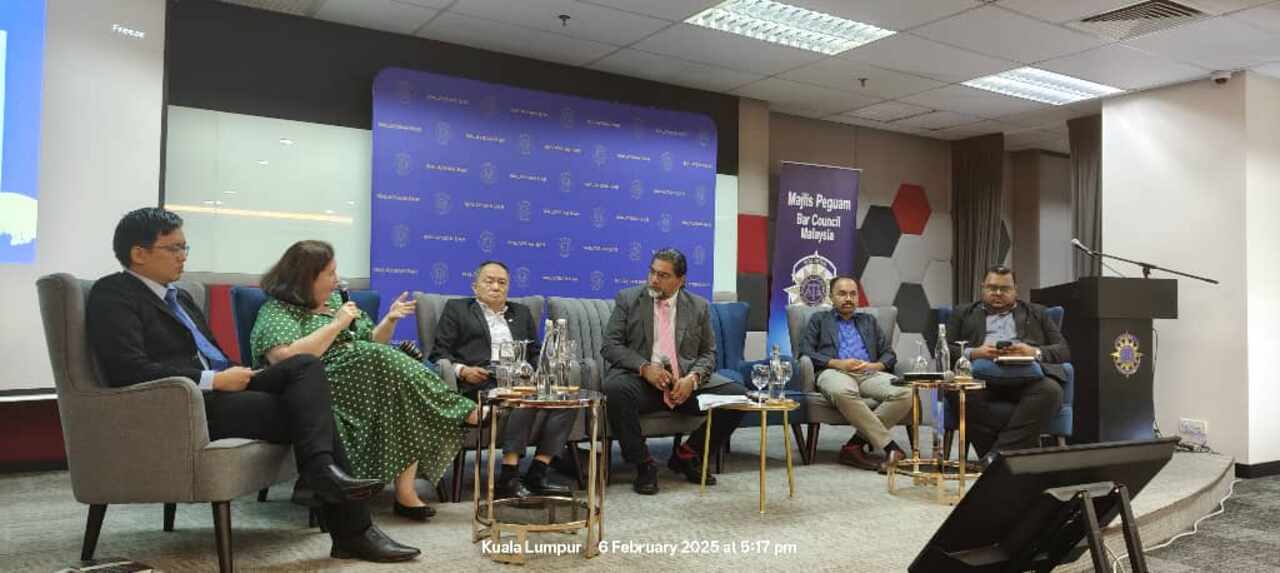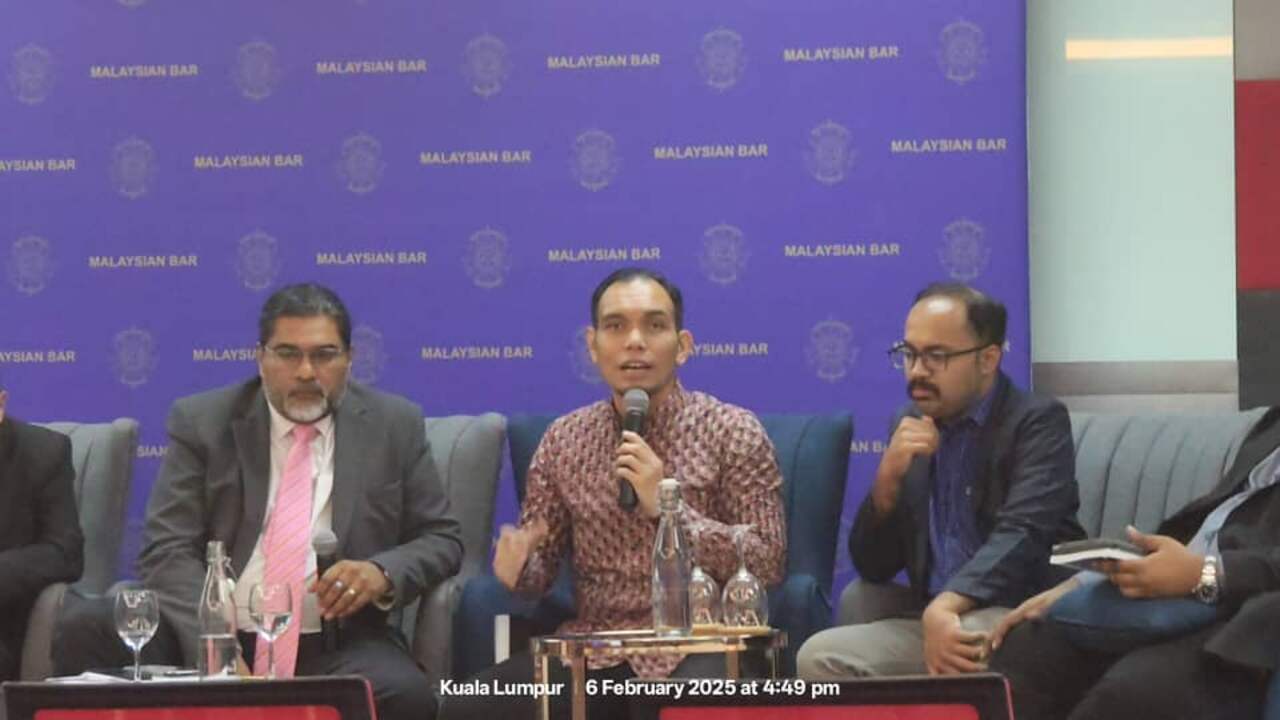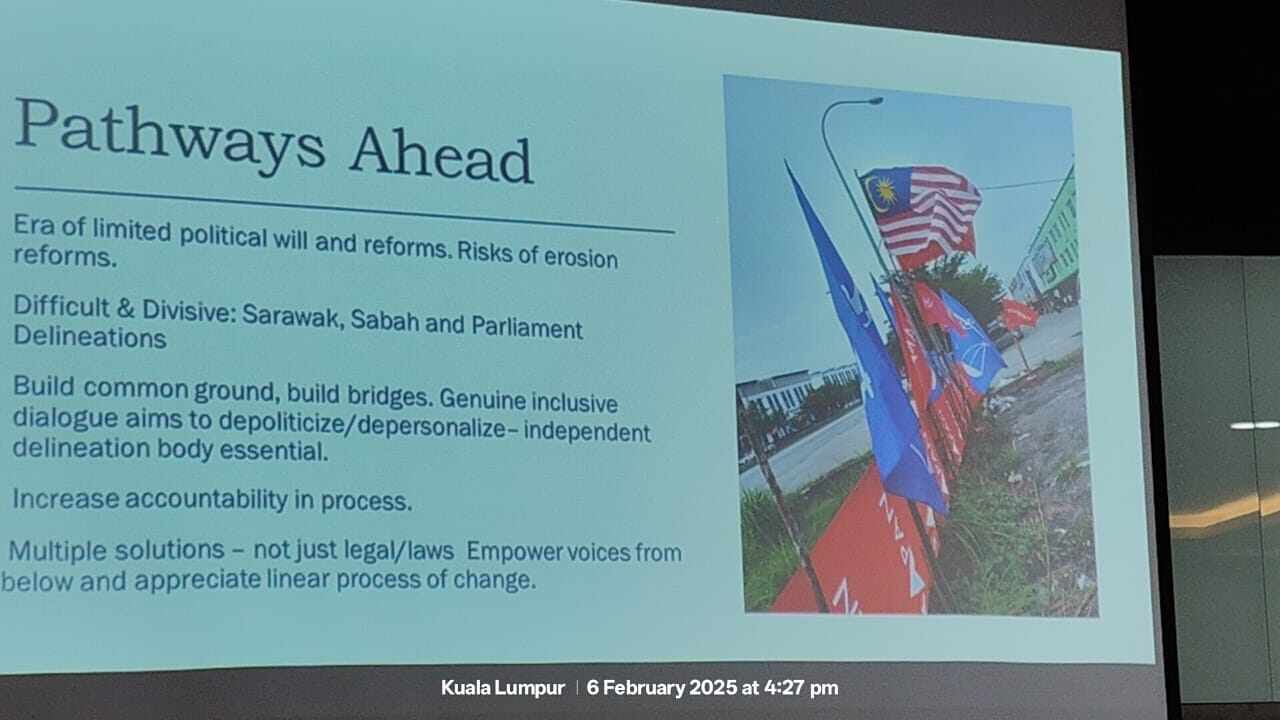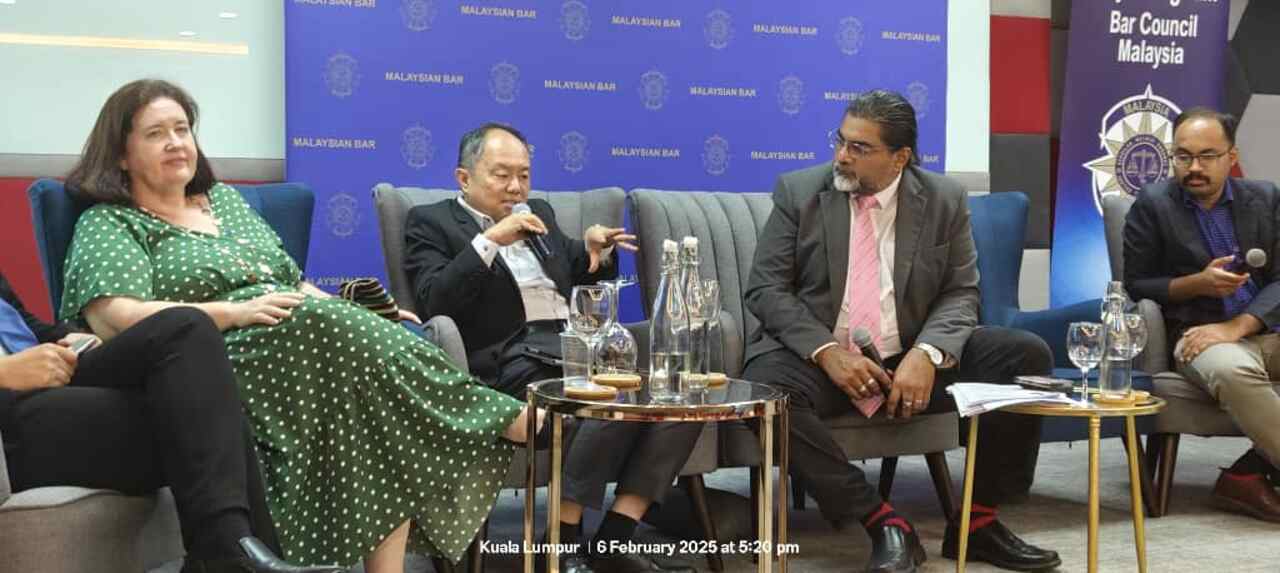The Bar Council Constitutional Law Committee convened a crucial forum on February 6, 2025, at the Raja Aziz Addruse Auditorium, Wisma Badan Peguam Malaysia, addressing the pressing need for electoral reforms in Malaysia. The discussions, led by a panel of experts, focused on the re-delineation of electoral boundaries and its implications on democratic fairness.

The panelists included Thomas Fann, former chairman of BERSIH and chairman of ENGAGE; Dr Bridget Welsh, honorary research associate at the Asia Research Institute, University of Nottingham Malaysia; Syahredzan Johan, Member of Parliament for Bangi; Danesh Prakash Chacko, co-partner at Tindak Malaysia; Wo Chang Xi, research analyst at the United Nations Sustainable Development Solutions Network (“SDSN”) Asia Headquarters, Sunway University, and Projek SAMA; and Shugan Raman, advocate and solicitor at Shugan & Co. The session was moderated by Anand Raj, vice-president of the Malaysian Bar.
Gerrymandering and Malapportionment
A major concern raised at the forum was gerrymandering, where electoral districts are drawn in a way that benefits certain political parties. Panelists highlighted how unfair redistricting allows political entities to retain power by manipulating constituency boundaries, even when they do not command majority support. For instance, a region with a majority opposition-leaning population could be divided to dilute its influence, thereby skewing election results.

Another issue discussed was malapportionment, where the number of voters per constituency is highly disproportionate. Some constituencies hold over 100,000 voters, while others have fewer than 20,000, effectively giving smaller constituencies greater electoral influence. This disparity contradicts the constitutional principle of equal representation, prompting calls for urgent reform.
Impact on Public Trust and Democratic Integrity
Panelists warned that continued electoral manipulation risks eroding public trust in Malaysia’s democratic system. When voters perceive elections as unfair, it discourages participation and weakens governance legitimacy. Electoral boundaries influence political power for years, affecting policies, resource distribution, and national development.

The discussion emphasized the role of public awareness and activism in driving electoral reform. Danesh Prakash Chacko presented data analyses showing how opposition votes are concentrated in a few districts, while government-leaning votes are spread across multiple seats, ensuring an advantage. This strategic mapping of voter demographics underscores the necessity for an independent body to oversee electoral boundary delineation.
Call for Systemic Reforms
Despite provisions in Malaysia’s Federal Constitution outlining fair re-delineation, enforcement remains weak. The panelists urged for stronger legal mechanisms such as judicial reviews and public objections to counter unfair electoral practices. Comparisons with other democracies, as highlighted by Wo Chang Xi, revealed that many countries implement strict oversight to prevent political interference, while Malaysia lacks sufficient safeguards.

A transparent and independent electoral commission was proposed as a key step toward ensuring fair constituency demarcation. As discussions gain momentum, voters were encouraged to scrutinize changes, engage in the re-delineation process, and demand accountability from the authorities. With organizations like Tindak Malaysia providing resources on voter participation, the forum served as a reminder that electoral fairness is the cornerstone of a functioning democracy.











